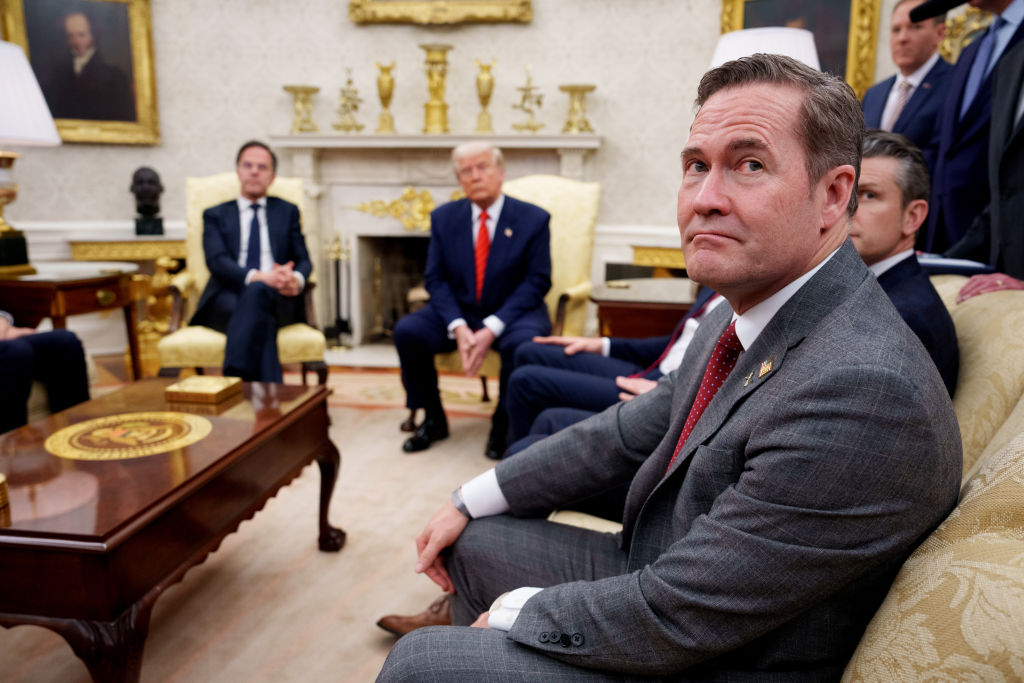Mike Waltz, the national security adviser, is set to lose his job over what came to be called Signalgate.
He was the one who set up the ‘Houthi PC small group’ and either he or a member of his staff in error invited Jeffrey Goldberg, editor-in-chief of the Atlantic magazine, to participate. Goldberg blew the whistle after the raids had taken place.
Others in the group included Pete Hegseth, the defence secretary, who obliged with all the operational data such as airstrike timings and particular aircraft to be involved, Vice President JD Vance, Marco Rubio, secretary of state, John Ratcliffe, CIA director, and Tulsi Gabbard, director of national intelligence.
Waltz has been selected to take the wrap. Although Trump initially insisted he had full confidence in Waltz and said he would continue in his job, behind the scenes the mutterings against him were becoming more voluble by the day.
His deputy, Alex Wong, is also leaving the White House. That means that – if Waltz and Wong are confirmed as fired – at least five members of the national security council (NSC) have already gone.
Last month three NSC officials, Brian Walsh, a director for intelligence, Thomas Boodry, a senior director for legislative affairs, and David Feith, a senior director for technology and national security, were sacked. Their ousting followed a meeting in the White House between Trump and Laura Loomer, a right-wing activist trusted by the president, who claimed there were people in his administration who were not committed to the Make America Great Again agenda.
To add to the general picture of disruption at the high-end of the Trump administration, General Timothy Haugh, director of the National Security Agency, the biggest of America’s 18 intelligence services, was fired last month, along with his deputy, Wendy Noble.
Loomer posted on X that the general and his deputy had been disloyal to the president. ‘That is why they have been fired,’ she wrote.
The exit of Mike Waltz, however, is the biggest blow so far to the cabinet make-up which the president had so carefully nurtured.
Since the Signalgate embarrassment broke, most of the focus has been on the future of Pete Hegseth because of his exposition of the imminent US airstrikes on the Houthis. The Pentagon inspector general who is investigating the defence secretary for a potential breach of security, has yet to make any findings public.
However, it was Waltz who took responsibility for setting up the Signal group, and Trump’s response was more or less, ‘let’s leave it at that and move on’.
When Waltz, 51, was appointed national security adviser he had all the ‘right stuff’ to be a Trump right-hand man. He was a former US Army Green Beret officer who served in the military for 27 years, ending up with the rank of colonel.
He was the first Green Beret to be elected to Congress and was the Republican Representative for Florida from 2019 to 2025.
After Trump selected him as his national security adviser, he described the congressman as a ‘nationally recognised leader in national security’.
He also said he was a strong champion of ‘my America First foreign policy agenda’. Waltz is known as a China hawk and was a vocal critic of President Biden’s policy towards Ukraine.
He had had previous experience in government, serving in a number of national security policy roles in the administration of President George W Bush.
Waltz’s deputy, Alex Wong, was identified as the staffer responsible for pulling together a ‘tiger team’ of deputies and chiefs of staff to support the Signal group of top officials.
Following the ousting of Waltz, there is every expectation that there could be more disruption of the national security apparatus.
Trump told reporters on April 3 on board Air Force One: ‘Always, we’re going to let go of people we don’t like, or people we don’t think can do the job or people who may have loyalties to somebody else.’
It’s a philosophy familiar from the first administration of this president.







Comments